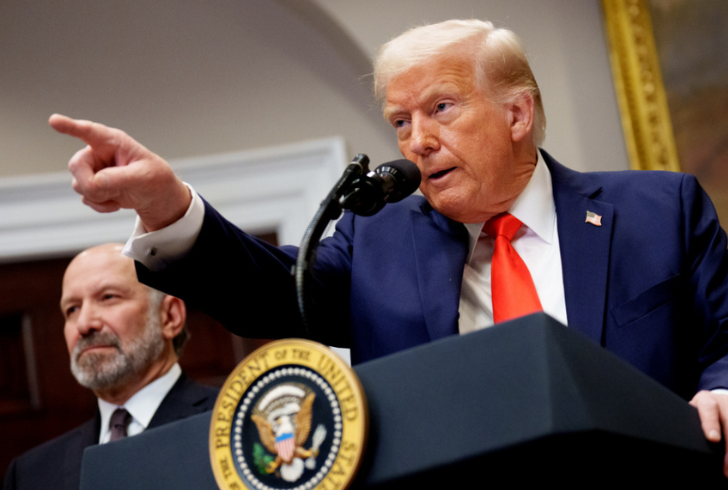It’s no longer sufficient for U.S. companies to track interest rates and quarterly trends. These days, strategy meetings sound more like foreign policy briefings. What used to be background noise—tariffs, sanctions, export controls—is now the soundtrack of modern business. If that sounds dramatic, ask the semiconductor firms rerouting billions in capital after a single policy announcement. Or the logistics executives trying to map a supply chain around a diplomatic standoff.
This isn’t temporary turbulence. It’s a structural realignment.
Geopolitics Is Back—And This Time, It’s In the Boardroom
For decades, geopolitics was something multinational firms tried to insulate themselves from, not actively engage with. The assumption was simple: market forces would ultimately override political posturing. That assumption no longer holds. CEOs now routinely cite geopolitical tension as a leading threat to global growth, and with good reason.
The trade war between Washington and Beijing didn’t just introduce tariffs—it destabilized an entire philosophy of global integration. It forced companies to reckon with what risk actually looks like in a bifurcating world. The question isn’t just, “Where do we manufacture?” It’s now, “What if this jurisdiction gets hit with sanctions next quarter?”
Instagram | etenergyworld | IRA and CHIPS incentivize growth in U.S. semiconductors, clean energy, and defense.
Trade Rules Are Getting Rewritten
The U.S. is no stranger to reinventing its role in global trade, but recent policy shifts have been unusually aggressive—and unusually targeted. This isn’t a generalized protectionism; it’s industrial policy with teeth. The CHIPS and Science Act, for example, wasn’t drafted in a vacuum. It was a direct response to overexposure in East Asian supply chains and the realization that “just-in-time” only works until borders harden.
The IRA follows the same logic: if the energy transition is inevitable, then the U.S. intends to own the infrastructure, not just buy it. This means tax incentives, but also carefully worded rules that reward domestic sourcing and penalize reliance on geopolitical rivals.
Not All Risks Are Created Equal
Let’s get specific. There are four pressure points every globally minded U.S. company should be watching:
-
Tariffs and Retaliatory Measures: These aren’t static. They evolve with every negotiation breakdown or election cycle. Smart firms are mapping their exposure not just by geography, but by product line.
-
Industrial Policy: This isn’t just Washington picking winners. It’s a redirection of public and private capital toward sectors deemed too important to fail. Think semiconductors, EV batteries, defense tech.
-
Foreign Direct Investment Restrictions: The Committee on Foreign Investment in the United States (CFIUS) now reviews deals that would’ve sailed through a decade ago. Cross-border M&A requires a geopolitical lens, not just a financial one.
-
Cybersecurity and IP Risk: If you’re storing proprietary data in a country with vague data sovereignty laws, you’re not being edgy or reckless.
Strategic Flexibility Beats Nostalgia
Nostalgia for globalized ease won’t keep the doors open. Strategic flexibility will. Companies like Nucor understood that early, diverting capital to domestic steel production as soon as tariffs hit, instead of waiting for a policy reversal that never came. Apple didn’t abandon China entirely but began diversifying operations to India and Vietnam, hedging its bets with real money.
These aren’t anecdotes—they’re blueprints.

Instagram | foreignpolicymag | The fate of American business rests on its strategic response to government policies.
Policy Isn’t the Enemy. It’s the Playbook
One under-discussed reality: public policy isn’t just a constraint—it’s an accelerant if you know how to read it. Industrial policy is basically a map. Look at where the government is spending, where it’s incentivizing, and where it’s drawing red lines. That’s where you build.
Micron’s investment in U.S.-based fabrication plants didn’t just happen. It was engineered to line up with CHIPS Act incentives and avoid future export restrictions. TSMC did the same, less because they wanted to be in Arizona, more because they couldn’t afford not to be.
A Culture of Foresight
Companies that treat geopolitics like a quarterly nuisance will keep getting blindsided. The ones that build it into their DNA—as a continuous feedback loop between government affairs, operations, and capital planning—will move faster and smarter. Resilience isn’t a buzzword; it’s the ability to function amid volatility without having to rewrite your entire business model every time a headline breaks.
The world isn’t falling apart. It’s just becoming less naïve. American businesses should follow suit.










